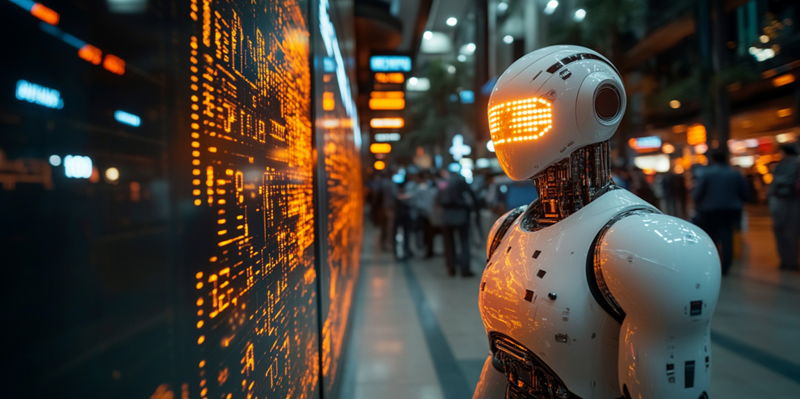Artificial intelligence has undeniably revolutionized various sectors, including finance, introducing substantial advancements in efficiency and data processing. Yet, despite these significant strides, human traders persist in maintaining a competitive edge over AI in the financial markets. The myriad reasons behind this phenomenon are rooted in the unique qualities and skills that human traders possess—qualities that artificial intelligence has yet to replicate effectively. By delving into the roles AI currently plays in finance, particularly in high-frequency and long-term trading strategies, it becomes evident why human traders remain indispensable.
The Rise of AI in Finance
AI has emerged as a formidable force in the financial sector, spearheading the automation of tasks and enhancement of operational efficiency. Institutions like JPMorgan and Capital One have integrated AI-powered chatbots in customer service roles, delivering cost-effective and streamlined services. Although users occasionally find interactions with these chatbots less satisfying than with human agents, the overall operational benefits for the companies are clear and substantial. As AI technology becomes more ingrained in daily processes, acceptance among the public is likely to grow over time.
In the sphere of trading, AI has demonstrated remarkable capabilities, especially in processing large quantities of data at unprecedented speeds. Bloomberg’s BloombergGPT, a large language model optimized for finance, serves as a prime example of AI’s prowess in managing extensive analytical tasks generally handled by junior analysts. However, despite these impressive capabilities, AI technology still encounters limitations in replicating human qualities like strategic thinking, creativity, and intuition—essential components of successful trading that remain out of AI’s reach for now.
High-Frequency Trading: Speed vs. Strategy
High-frequency trading is one area where AI has substantially impacted the approach to trading. This strategy, which hinges on speed, often measures success by the quality of hardware and the physical proximity to exchange centers. Superior servers and advanced deep learning networks are utilized to gain fractional advantages over competitors, sometimes within microseconds. The incorporation of AI and machine learning into HFT has undoubtedly enhanced the efficiency of these operations, albeit reducing market inefficiencies and, consequently, profit opportunities.
Nonetheless, even in the realm of high-frequency trading, human traders continue to play an integral role. The necessity for strategic thinking and the capacity to adapt quickly to fluctuating market conditions are areas where human experience and intuition excel. While AI systems may execute trades with exceptional speed, they lack the sophisticated grasp of market dynamics possessed by human traders. This nuanced understanding often translates to better decision-making, especially in unpredictable market environments, underscoring the irreplaceable value of human insight in high-frequency trading.
Long-Term Trading: The Human Edge
When it comes to long-term trading strategies, the disparity between human traders and AI becomes even more pronounced. Long-term investments prioritize thoughtful decision-making over mere speed, leveraging probabilistic approaches that greatly benefit from human insight. Human traders, by closely monitoring market news and trends, can make informed and nuanced decisions that AI systems might miss, illustrating a clear edge in their favor.
Traditional methods, like backtesting and the analysis of historical data, remain highly effective in long-term trading scenarios. Human traders frequently outperform AI in these settings due to their ability to interpret complex market signals and implement strategic decisions based on a combination of experience and intuition. Despite continuous advancements in AI technology, the indispensable ‘human touch’ in the sphere of long-term trading strategies cannot be overstated. The unique capacity of humans to integrate multifaceted data into a coherent strategy is something AI continues to strive towards but has yet to achieve.
The Future of AI in Trading
Artificial intelligence has undeniably transformed various sectors, including finance, bringing substantial advancements in efficiency and data processing. However, despite these major strides, human traders still maintain an edge over AI in financial markets. The reasons for this can be found in the unique qualities and skills that human traders possess—qualities that artificial intelligence has yet to effectively replicate. Exploring the roles AI currently plays in finance, particularly in high-frequency and long-term trading strategies, highlights why human traders continue to be essential. AI excels in executing complex algorithms at lightning speed and analyzing vast datasets, offering valuable insights. Yet, it falls short in areas requiring intuition, emotional intelligence, and the ability to adapt in unforeseen situations. These human traits are crucial for making nuanced decisions, especially in volatile market environments. Thus, while AI contributes significantly to the financial sector, the irreplaceable value of human judgment and expertise ensures that human traders remain indispensable.

